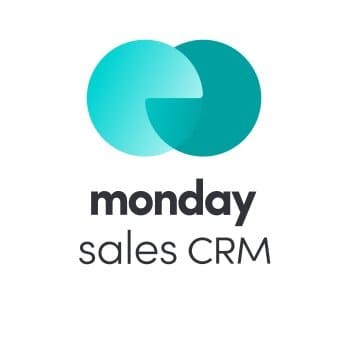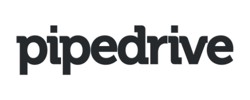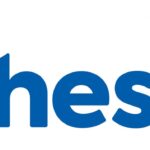Choosing the right Customer Relationship Management (CRM) software is a critical decision for any business looking to enhance efficiency, boost sales, and improve customer relationships. In today’s rapidly evolving market, a CRM is no longer a luxury, but a necessity for businesses of all sizes. With a plethora of options available, comparing CRM platforms is essential to ensure you select the one that perfectly aligns with your unique business needs and goals. This comprehensive comparison will delve into some of the leading CRM software solutions, examining their features, pricing, pros, and cons to help you make an informed decision.
The CRM market is experiencing explosive growth, reflecting its increasing importance in the business world. Industry analysts predict continued expansion, emphasizing the shift towards cloud-based solutions and the significant impact of CRM on sales and revenue. Investing in the right CRM today can provide a competitive edge, streamline operations, and ultimately drive business success.
To guide you through this crucial selection process, we’ve compiled a detailed comparison of popular CRM software platforms. This guide will help you analyze pricing plans and features, enabling you to choose a CRM that not only fits your budget but also empowers your team to achieve peak performance.
Before we dive into individual CRM platforms, let’s take a look at a comparative overview of pricing and key features:
Comparison Table of Popular CRM Software
| CRMs | Minimum Price (USD, Billed Annually) | Maximum Price (USD, Billed Annually) | Free Plan | Free Trial | Key Strengths |
|---|---|---|---|---|---|
| Salesforce | $25/user/month | $300/user/month | ❌ | 30 days | Extensive features, scalability, customization |
| HubSpot | $50/user/month (Starter Suite) | $3,600/month (Enterprise Suite) | ✅ (Free CRM) | 30 days | Marketing integration, user-friendly, free version available |
| Creatio | $25/user/month | $85/user/month | ❌ | 14 days | No-code platform, workflow automation, industry-specific solutions |
| Insightly | $29/user/month | $99/user/month | ✅ (Free for 2 users) | 14 days | Project management features, SMB focus, user-friendly |
| Zoho | $18/user/month (approx. €14) | $56/user/month (approx. €52) | ✅ (Free for up to 3 users) | 15 days | Affordable, feature-rich, scalability, integrations |
| Pipedrive | $13.50/user/month (approx. €12.50) | $64.90/user/month (approx. €59.90) | ❌ | 14 days | Sales-focused, pipeline management, ease of use |
| monday sales CRM | $10/user/month (approx. €10) | $24/user/month (approx. €24) | ✅ (Free for 2 users) | 14 days | Visual platform, workflow customization, collaboration |
| Freshsales | $15/user/month | $69/user/month | ✅ (Free for up to 3 users) | 21 days | AI-powered features, sales automation, user-friendly |
| Zendesk | $55/agent/month | $115/agent/month | ❌ | 14 days | Customer service focus, omnichannel support, robust features |
| Capsule | $17/user/month (approx. £14) | $73/user/month (approx. £60) | ✅ (Free for 2 users) | 14 days | Simple, affordable, contact and pipeline management |



Note: Prices are approximate and may vary based on currency exchange rates and specific plan features. Always check the vendor’s website for the most up-to-date pricing.
Deep Dive into Top CRM Platforms: Features, Pros, and Cons
To give you a more detailed understanding, let’s explore some of the leading CRM platforms in depth. We’ll categorize them based on their strengths to help you quickly identify options that might be the best fit for your specific needs.
Best Overall CRM: Salesforce
When businesses aim to “sell smarter and close more deals,” Salesforce consistently ranks as the #1 CRM choice. It’s a powerhouse packed with features and extensive add-ons (over 600!), making it a highly versatile and customizable solution.
Go to siteRead review →
Salesforce’s pricing structure is diverse, catering to a wide range of business sizes and complexities, though it is often considered more suitable for larger companies with intricate sales processes.
-Mar-27-2024-01-13-56-3971-PM.png)
Salesforce’s robust platform offers extensive customization and features for diverse business needs.
Salesforce Pricing Plans (Billed Annually):
- Salesforce Essentials: $25/user/month – Basic CRM features for small businesses.
- Salesforce Professional: $75/user/month – Enhanced sales and team collaboration features.
- Salesforce Enterprise: $150/user/month – Advanced customization, reporting, and workflow automation.
- Salesforce Unlimited: $300/user/month – Comprehensive CRM with unlimited support and features.
Pros of Salesforce:
- Cloud-based Solution: Accessible from anywhere, anytime.
- Highly Customizable: Adaptable to specific business needs and workflows.
- Extensive Feature Set: A wide array of tools and functionalities for sales, marketing, and service.
- Strong Integration Capabilities: Connects with numerous third-party applications and social networks.
- Robust Ecosystem: Large community, extensive support resources, and app marketplace.
Cons of Salesforce:
- High Price Point: Can be expensive, especially for small businesses.
- Complexity: Steep learning curve and can be complex to set up and manage.
- Analytics Limitations: While powerful, advanced analytics might require additional investment.
- Potentially Overkill for Small Businesses: May offer more features than some smaller businesses require.
Best CRM for Workflow Customization: monday sales CRM
If workflow customization and visual project management are top priorities, monday sales CRM stands out. This platform allows you to tailor workflows to track every aspect of your sales cycle, offering a visually intuitive and collaborative environment.
Go to siteRead review →
monday sales CRM is designed to simplify operations, making it easy for teams to manage tasks, visualize data, and communicate effectively.
monday sales CRM Pricing Plans (Billed Annually):
- Free: Limited features, for up to 2 users.
- Basic: €10/user/month – Essential CRM features for small teams.
- Standard: €14/user/month – Automation, integrations, and advanced views.
- Pro: €24/user/month – Sales forecasting, email tracking, and enhanced automation.
- Enterprise: Custom pricing – Advanced features, reporting, and dedicated support for large organizations.
Pros of monday sales CRM:
- Highly Visual and User-Friendly: Easy to navigate and adopt for teams of all technical levels.
- Extensive Customization: Tailor workflows, dashboards, and views to specific business needs.
- Strong Collaboration Features: Facilitates team communication and project management within the CRM.
- Scalability: Suitable for small businesses to large enterprises.
- Free Plan Available: Accessible entry point for small teams or startups.
Cons of monday sales CRM:
- Mass Email Limitations: Absent in lower-tier plans.
- No Lead Scoring: Requires manual lead prioritization.
- Sales-Focused: May lack depth in marketing-specific features compared to some marketing-centric CRMs.
Best CRM for Sales-Focused Teams: Pipedrive
Pipedrive is specifically designed as a sales-focused CRM, built to streamline the sales process and enhance lead management. It leverages AI to automate repetitive tasks, allowing sales teams to concentrate on closing deals.
Go to siteRead review →
Pipedrive’s intuitive interface and robust sales features make it a popular choice for sales teams looking to boost efficiency and track performance.
Pipedrive Pricing Plans (Billed Annually):
- Essential: €12.50/user/month – Core sales management features.
- Advanced: €24.90/user/month – Email marketing, workflow automation, and scheduling.
- Professional: €49.90/user/month – Revenue forecasting, lead routing, and document management.
- Power: €59.90/user/month – Project management, advanced support, and customization.
- Enterprise: €74.90/user/month – Unlimited features and dedicated support.
Pros of Pipedrive:
- Sales Pipeline Focus: Visually manage and track deals through every stage of the sales process.
- User-Friendly Interface: Easy to set up and use, even for non-technical users.
- AI-Powered Automation: Automates tasks and provides insights to improve sales efficiency.
- Strong Reporting and Analytics: In-depth sales reports to identify areas for improvement.
- Integrations: Connects with popular sales and marketing tools.
Cons of Pipedrive:
- Limited Marketing Features: Primarily focused on sales, may require integrations for comprehensive marketing automation.
- Design Preferences: Some users may find the design less visually appealing compared to other platforms.
Best CRM for Marketing Integration: HubSpot CRM
HubSpot CRM is renowned for its comprehensive marketing suite and seamless integration between its CRM, marketing, sales, and service hubs. It offers a powerful free CRM version, making it accessible to businesses of all sizes.
Go to siteRead review →
HubSpot’s strength lies in its ability to unify marketing and sales efforts, providing a holistic view of the customer journey.
HubSpot CRM excels in marketing integration, offering a unified platform for sales and marketing alignment.
HubSpot CRM Pricing Plans (Billed Annually):
- Free CRM: Forever free, with basic CRM features for unlimited users.
- Starter Suite: Starting at $50/month – Includes Marketing Hub Starter, Sales Hub Starter, Service Hub Starter, and CRM.
- Professional Suite: Starting at $1,781/month – Advanced features for marketing, sales, and service.
- Enterprise Suite: Starting at $5,000/month – Comprehensive, enterprise-grade platform.
Pros of HubSpot CRM:
- Free Version Available: Robust free CRM with essential features.
- Comprehensive Marketing Suite: Seamlessly integrates with HubSpot’s marketing, sales, and service hubs.
- User-Friendly Interface: Intuitive and easy to learn, even for beginners.
- Predictive Lead Scoring: Helps prioritize leads based on likelihood to convert.
- Strong Integrations: Connects with a wide range of business applications.
Cons of HubSpot CRM:
- Cost for Advanced Features: Higher-tier plans can become expensive, especially for larger teams.
- Complexity at Higher Levels: The extensive feature set can be overwhelming for new users at higher tiers.
- Functionality Needs: Some advanced users may require more customization than the platform offers out-of-the-box.
Best CRM for Small to Medium-Sized Businesses (SMBs): Freshsales
Freshsales CRM, part of the Freshworks suite, is tailored to personalize customer engagement, shorten sales cycles, and facilitate business growth, making it an excellent choice for SMBs.
Go to siteRead review →
Freshsales offers a balance of robust features and ease of use, making it accessible and effective for growing businesses.
Freshsales CRM provides a user-friendly and feature-rich platform ideal for SMB growth.
Freshsales CRM Pricing Plans (Billed Annually):
- Free: For up to 3 users, basic CRM features.
- Growth: $15/user/month – Sales automation and enhanced features.
- Pro: $39/user/month – Multiple sales pipelines, AI-powered insights, and team management tools.
- Enterprise: $69/user/month – Advanced customization, governance, and controls for larger teams.
Pros of Freshsales CRM:
- User-Friendly and Intuitive: Easy to learn and implement, reducing onboarding time.
- Sales Automation: Automates repetitive tasks, freeing up sales team time.
- AI-Powered Features: Provides insights and next-best-action recommendations.
- Free Trial and Free Plan: Accessible entry point for small businesses.
- Comprehensive Feature Set: Offers a wide range of features for sales management and customer engagement.
Cons of Freshsales CRM:
- Fewer Integrations Compared to Giants: May have fewer third-party integrations compared to Salesforce or Zoho.
Best CRM for Customer Service: Creatio
Creatio stands out as a unified platform that automates industry workflows and customer relationship management (CRM) with a no-code approach. It offers a suite of CRM applications, including Marketing Creatio, Sales Creatio, and Service Creatio, making it particularly strong in customer service management.
Go to siteRead review →
Creatio’s no-code platform and omnichannel capabilities make it a powerful tool for businesses focused on delivering exceptional customer service experiences.
Creatio Pricing Plans (Billed Annually):
- CRM Bundle: Starting at $25/user/month – Includes Sales, Marketing, and Service Creatio.
- Sales Creatio: Starting at $25/user/month – Sales automation and CRM features.
- Service Creatio: Starting at $85/user/month – Omnichannel customer service and support automation.
- Marketing Creatio: Contact vendor for pricing – Marketing campaign management and automation.
Pros of Creatio:
- Unified Platform: Combines CRM, workflow automation, and industry-specific solutions.
- No-Code Platform: Enables customization and workflow changes without coding expertise.
- Industry-Specific Workflows: Pre-built workflows for 20+ industries, accelerating deployment.
- Omnichannel Capabilities: Seamless customer support across multiple channels.
- Flexibility and Customization: Highly adaptable to unique business processes.
Cons of Creatio:
- Potentially Expensive: Can be a higher-cost solution, especially for smaller businesses.
- Learning Curve: May require time and resources to learn the platform and its features effectively.
Key Factors to Compare When Choosing a CRM
Beyond individual platform reviews, consider these critical factors when comparing CRM software options:
- Features: Does the CRM offer the features you need for sales, marketing, customer service, or a combination? Consider features like contact management, sales pipeline tracking, automation, reporting, email marketing, and integrations.
- Pricing: Does the CRM fit your budget? Compare pricing plans, per-user costs, and any add-on fees. Consider free trials and free versions to test platforms before committing.
- Ease of Use: Is the CRM user-friendly and intuitive? Consider the learning curve for your team and the availability of training and support resources.
- Integrations: Does the CRM integrate with your existing business tools, such as email platforms, marketing automation software, accounting systems, and other essential applications?
- Scalability: Can the CRM grow with your business? Consider whether the platform can handle increasing data volumes, users, and evolving business needs.
- Customer Support: What level of customer support is offered? Consider support channels, response times, and the availability of documentation and community resources.
Conclusion: Choosing the Right CRM for Your Success
Selecting the ideal CRM software is a strategic investment that can significantly impact your business’s growth and customer relationships. By carefully comparing CRM platforms based on features, pricing, ease of use, and your specific business requirements, you can make an informed decision that empowers your team and drives success.
Remember to take advantage of free trials and free CRM versions to test out platforms and ensure they align with your workflow and business goals. The right CRM is out there – the key is to compare, evaluate, and choose the solution that best positions your business for long-term growth and customer satisfaction.
